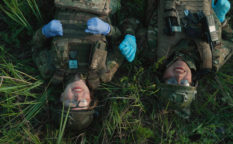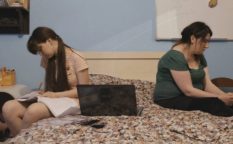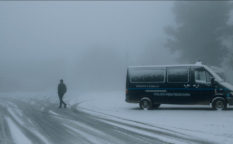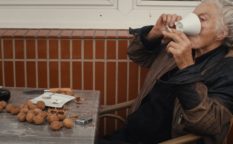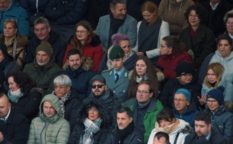Review: Robolove (2019)
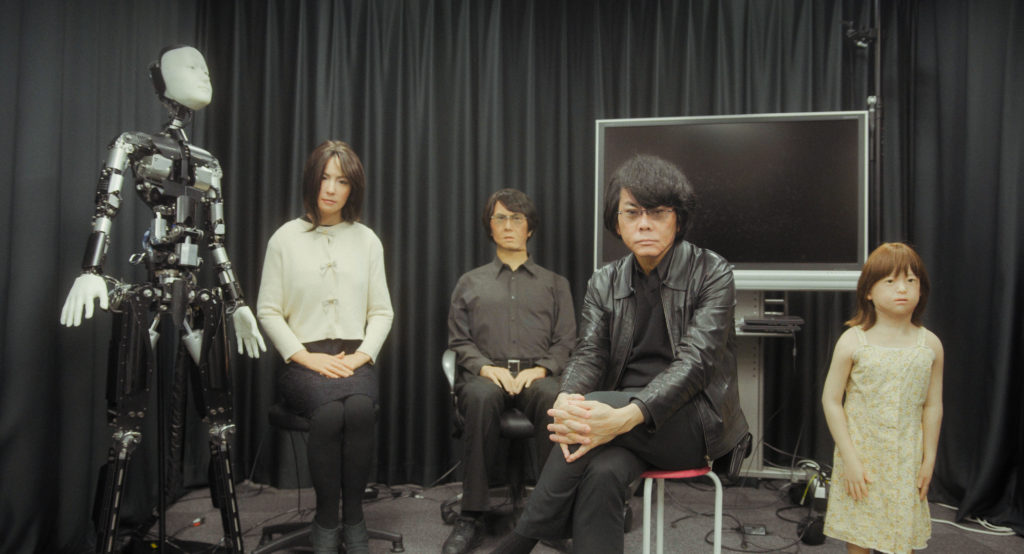
The title Robolove is misleading both regarding an instant association to a well-established fetish focusing on sex dolls and sex robots, or as scientific enthusiasm for robotics. The intentional word play gets embodied for a brief period of time, but the essential question in Maria Arlamovsky’s documentary is much closer to the title of Philip K. Dick’s iconic novel “Do Androids Dream of Electric sheep”, although it explores if a machine can have the same type of feelings as humans.
Robolove premiered almost simultaneously at the Viennale and DOK Leipzing last year, winning Gedanken-Aufschluss Prize at the latter. The festival tour continued with the online edition of CPH:DOX and it was also scheduled for the Austrian national cinema festival Diagonale that was also cancelled due to the outbreak of the pandemic.
The documentary starts with a neon-themed opening credits and a montage sequence of a man on a date with his “girlfriend”, a human-sized doll that looks like a real woman.After a cup of tea in a café, “they” go for a tricycle ride. Later in the film, it turns out that the man is an artist, and the doll is his preferred company and audience rather than an object of sexual fetish. The topic of sex dolls and robots is addressed from various angles later in the film: from the company that is producing them for its clients, to the thoughts of three sex workers on how the robots will affect the market.

The topic of the film gets more serious when one of the well-known android enthusiasts, Hiroshi Ishiguro is introduced to talk about both technical and ethical challenges of robots looking and behaving like humans. The questions get more and more philosophical as the documentary unfolds, from one developer’s idea for his robots to save the memories of living persons, to the philosopher of transhumanism Natasha Vita-More’s meditation on the eternal life of a human consciousness long after the human body shuts down with androids serving as the vessels for the consciousness. It also touches the broader sociological context of automatization, the actual differences between humans and robots in the sense of programming (the human beings are also being programmed in the terms of behaviour and even the emotions they should feel and we call it upbringing), and even the religious concepts, with a Buddhist monk drawing the parallels between anthropomorphic machines and the anthropomorphic representations of deities in the different religions.
It would be a pity to reveal the participants’ thoughts in more detail, since Maria Arlamovsky as the writer and director of the documentary with her team manages to make a deftly woven and deeply though-provoking holistic piece of cinema in a relatively compact format of 75 minutes. Her approach is predominantly based on interviews with the participants coming from different technical and humanistic backgrounds, but the ambients of their work and living spaces (“natural habitats”) where they take place are carefully chosen and captured by the DoP Sebastian Arlamovsky are almost elevated to the level of characters. As a clear and unapologetically optimistic vision of the present day challenges and the brightest of the future where people and machines would live and operate in synergy, Robolove is an absolute must-see.
Original title: Robolove
Year: 2019
Country: Austria
Languages: English, Japanese, Chinese, Korean, German, Spanish
Runtime: 75′
Directed by: Maria Arlamovsky
Written by: Maria Arlamovsky
Cinematography by: Sebastian Arlamovsky
Editing by: Emily Artmann
Sound design by: Andreas Hamza
Sound editing by: Andreas Hamza
Sound by: Andreas Hamza, Hjalti Bager-Jonathansson, Sergei Martynyuk
Music by: Andreas Hamza, Boris Hauf
Executive producer: Michael Kitzberger
Produced by: Michael Kitzberger, Nikolaus Geyrhalter, Markus Glaser, Wolfgang Widerhofer
Production company: NGF – Nikolaus Geyrhalter Filmproduktion GmbH
Supported by: Österreichische Filminstitut, Filmfonds Wien, Filmstandort Austria (FISA), ORF












